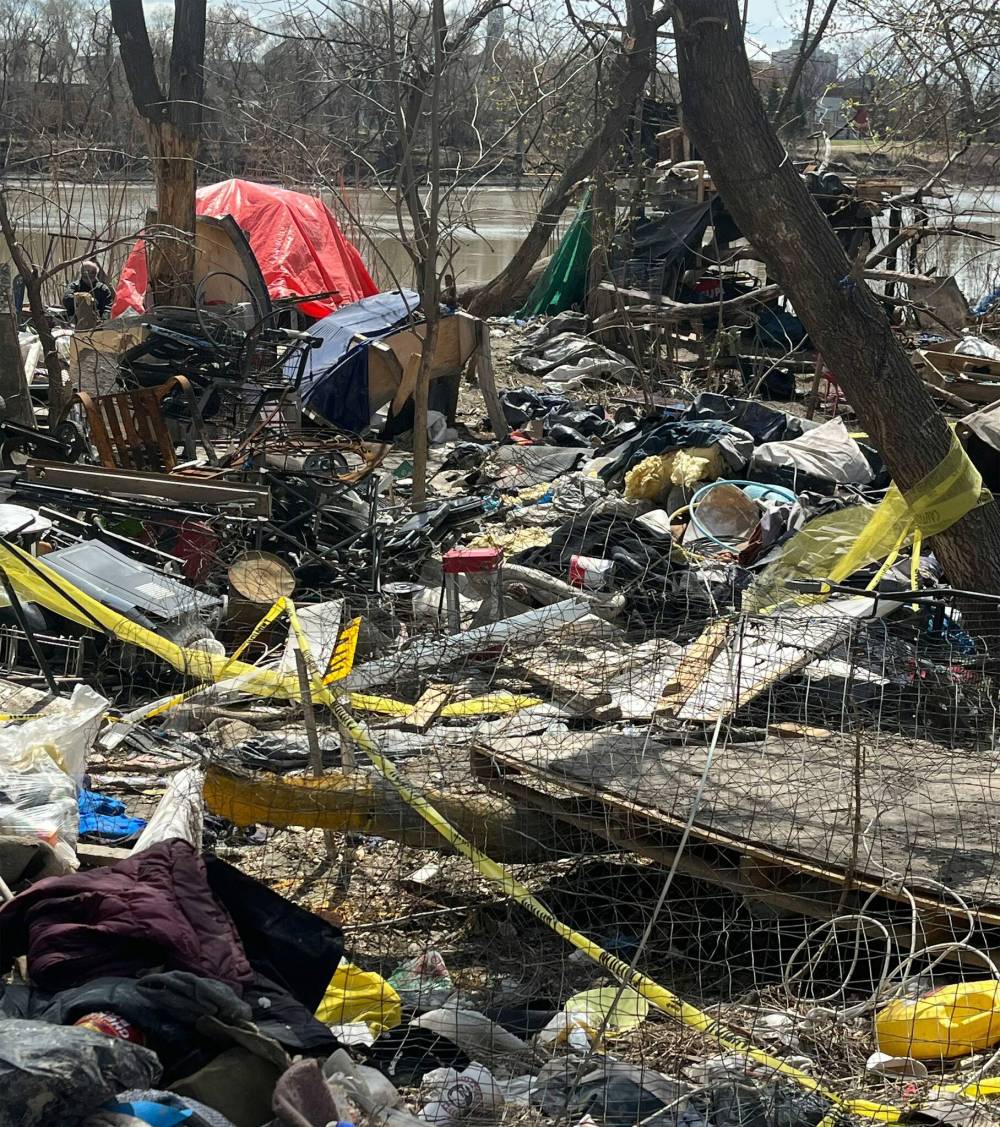Hoarding task force tied up with encampments, shelter issues: report
Advertisement
Read this article for free:
or
Already have an account? Log in here »
To continue reading, please subscribe:
Monthly Digital Subscription
$0 for the first 4 weeks*
- Enjoy unlimited reading on winnipegfreepress.com
- Read the E-Edition, our digital replica newspaper
- Access News Break, our award-winning app
- Play interactive puzzles
*No charge for 4 weeks then price increases to the regular rate of $19.00 plus GST every four weeks. Offer available to new and qualified returning subscribers only. Cancel any time.
Monthly Digital Subscription
$4.75/week*
- Enjoy unlimited reading on winnipegfreepress.com
- Read the E-Edition, our digital replica newspaper
- Access News Break, our award-winning app
- Play interactive puzzles
*Billed as $19 plus GST every four weeks. Cancel any time.
To continue reading, please subscribe:
Add Free Press access to your Brandon Sun subscription for only an additional
$1 for the first 4 weeks*
*Your next subscription payment will increase by $1.00 and you will be charged $16.99 plus GST for four weeks. After four weeks, your payment will increase to $23.99 plus GST every four weeks.
Read unlimited articles for free today:
or
Already have an account? Log in here »
A city task force set up to triage people who need help to overcome hoarding has been constrained by privacy concerns and staff diversions to other jobs.
The hoarding and collecting behaviours task force is making fewer referrals. It won’t gain the capacity to respond to hoarding concerns from the public, something it originally aimed to provide but has not done so far, says a new Winnipeg Fire Paramedic Service report.
“There is not enough funding for city staff to assess and review hoarding referrals (from the public) appropriately at current funding levels,” the report notes.

CAROL SANDERS / FREE PRESS FILES
A homeless encampment on Waterfront Drive in May. WFPS Chief Christian Schmidt said workers who worked for the city task force originally set up to help people overcome hoarding, have largely been diverted to respond to encampments as well as other duties.
The report does not ask city council to take any specific action, such as providing additional funding or staff.
WFPS Chief Christian Schmidt said the task force always operated within the service’s existing staff and budget, but staff time was diverted to other pressing issues over the last two years.
“The task force is still operating but, basically, it’s being run out of the community risk reduction area here at (Winnipeg) Fire Paramedic Service,” said Schmidt.
He said just one assistant chief and one front-line worker now include the task force among their duties.
“There (are) limited resources,” said Schmidt.
Hoarding is a psychological disorder that can result in poor sanitation and fire hazards. It can also impede the ability of emergency personnel to enter a home, according to sources such as the Mayo Clinic and Anxiety Canada.
The task force was designed to have the city’s community development crisis response staff (who are trained in social work) assess hoarding referrals, which could then trigger a response from their team, community paramedics, the Canadian Mental Health Association, Winnipeg Regional Health Authority or A&O: Support Services for Older Adults Inc.
In 2023, 27 cases of potential hoarding were referred through the triage program. That number dropped to nine “awaiting assessment” throughout 2024 and one “awaiting assessment” this year so far, the WFPS report notes.
The city’s community risk reduction officer devoted 18.5 hours to the task in 2023, when municipal community crisis workers spent 184.5 hours on it, which dropped to just 20 hours of total staff time in 2024 and 10 hours in 2025, the report notes.
Schmidt said workers who performed task force duties were largely diverted to respond to encampments, support local housing programs and help people find shelter after they were displaced by large fires. The chief said he did not know the number of staff that originally worked on the hoarding triage system.
He said the task force will continue and its number of referrals did not decrease solely due to the staffing level.
The city also learned there were legal and privacy concerns about sharing patient information.
Schmidt said the government has been working on a formal agreement with its task force partners to address the privacy issues since November 2023, said Schmidt.
“We’ve got to make sure we’re sharing (information) we can and only sharing what we can,” he said.
That process stalled progress, leading the group to stop holding meetings, the report notes.
The WFPS chief stressed the public can report concerns about hoarding to Manitoba’s 211 service, a number designed to help people connect to health and social services.
Coun. Vivian Santos, chairwoman of council’s community services committee, said WFPS staff are stretched thin dealing with many life and safety issues, which affected the task force.
“Because there’s no increase in staffing or community crisis workers in Winnipeg Fire Paramedic Service, it’s very challenging to go out and attend the referrals,” said Santos.
The councillor said ensuring an information sharing agreement is reached with the Winnipeg Regional Health Authority and Shared Health is a key step to ensuring the task force is effective. She said those agencies are better suited to respond to mental health concerns than the city government.
joyanne.pursaga@freepress.mb.ca
X: @joyanne_pursaga

Joyanne is city hall reporter for the Winnipeg Free Press. A reporter since 2004, she began covering politics exclusively in 2012, writing on city hall and the Manitoba Legislature for the Winnipeg Sun before joining the Free Press in early 2020. Read more about Joyanne.
Every piece of reporting Joyanne produces is reviewed by an editing team before it is posted online or published in print — part of the Free Press‘s tradition, since 1872, of producing reliable independent journalism. Read more about Free Press’s history and mandate, and learn how our newsroom operates.
Our newsroom depends on a growing audience of readers to power our journalism. If you are not a paid reader, please consider becoming a subscriber.
Our newsroom depends on its audience of readers to power our journalism. Thank you for your support.





